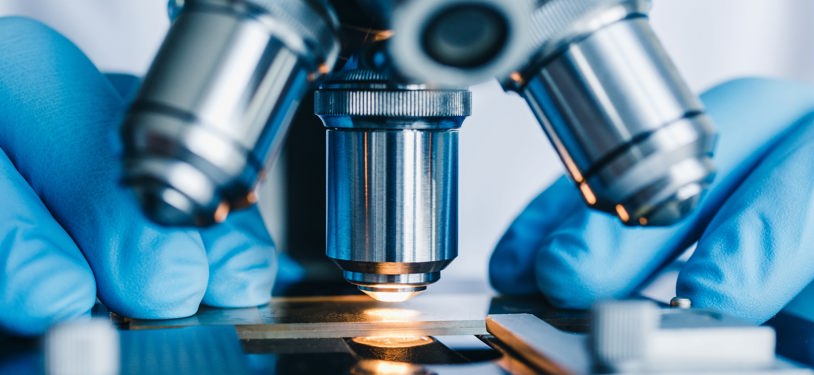RADIO J EN DIRECT. NOTRE CHRONIQUE A 7H05.
Chronique de Dr Daniel Rouach. Emission de Charlayne Wilmer.
« Un nouveau modèle israélien : les entreprises dans un hôpital ». Nous allons parler du Centre médical Sheba désigné souvent comme Hôpital Tel-Hashomer, qui est situé à Ramat Gan. C’est là où la startup Innovalve est située, au coeur de ce magnifique établissement hospitalier.
A SAVOIR. Une série de transactions en Israël a démontré une fois de plus que, dans le secteur de la santé, les dispositifs médicaux ont toujours les meilleures chances de s’en sortir.
C’est le cas d’Innovalve.
L’acquisition d’Innovalve par une firme américaine « Edwards Lifesciences » pour un montant estimé à $300 millions constitue la 4ème sortie de soins de santé en Israël depuis le 7 Octobre 2023, et trois d’entre elles concernent des dispositifs médicaux.
Edwards Lifesciences, leader mondial dans le traitement des valvules cardiaques, a déjà racheté deux sociétés dans ce domaine en Israël : PVT, qui est devenu le centre de développement d’Edwards en Israël, pour $125 millions ; et Valtech Cardio pour $340 millions.
HOPITAL SHEBA. Innovalve Bio Medical, fondée à l’hôpital Sheba, est le développeur d’un dispositif médical cardiovasculaire (remplacement de la « valvule mitrale trans-cathéter mini-invasif »).
Avant même sa création officielle en tant qu’entreprise, Innovalve avait signé un accord d’investissement avec Edwards Lifesciences qui est une entreprise américaine de matériel médical, spécialisée dans le matériel médical cardiovasculaire, notamment le cœur artificiel.
Innovalve a été acquise par Edwards avant même d’avoir obtenu l’autorisation de mise sur le marché, sur la seule base de sa technologie.
Innovalve compte 50 employés et son centre de développement devrait continuer à être situé en Israël.
A QUI PROFITE LA VENTE DE INNOVALVE?
La vente de Innovalve a été relativement rapide et rentable pour le secteur des dispositifs médicaux.
Les fondateurs, qui détiennent des participations substantielles dans l’entreprise, gagneront des dizaines de millions de $. La plupart des salariés détiennent des options et eux aussi bénéficieront de la vente.
L’hôpital Sheba lui-même rapportera également plusieurs millions de dollars.
Innovalve s’attaque à un marché considéré comme ayant un énorme potentiel. « La solution d’Innovalve était très innovante et très originale lorsque nous l’avons présentée il y a quatre ans, mais elle a tout de suite fait sens, et nous avons donc décidé de prendre le risque et d’investir, sachant que la concurrence était meurtrière, mais la valve présente de nombreux avantages ».
Il y a trois ans, la société a achevé le développement du dispositif et a commencé les essais cliniques. Jusqu’à présent, 40 implantations ont été réalisées, la plupart dans des hôpitaux de premier plan aux États-Unis.
INNOVATION : Un nouveau modèle : les entreprises dans un hôpital.
Le PDG d’Innovalve, affirme que si l’entreprise n’était pas située au sein de l’hôpital Sheba, tous ces « allers-retours » auraient pris beaucoup plus de temps.
« Il est inhabituel qu’une entreprise de 50 personnes travaille au sein d’un hôpital, mais nous avons insisté là-dessus, car nous avons ainsi considérablement raccourci les processus de développement. Si un médecin s’assoit ne serait-ce qu’à une demi-heure de l’entreprise – et avec l’état des transports en Israël, aucun endroit n’est vraiment à une demi-heure de n’importe où – chaque changement et chaque contrôle se déroule beaucoup plus lentement.
« Il y a aussi un impact sur la motivation des salariés. Ils peuvent aller voir leur produit en action. Ils voient les médecins qui l’utilisent, et même les patients. Je pense que notre entreprise est un test positif pour un modèle de collaboration qui pourrait grandement aider l’industrie en Israël. »
Lorsqu’on lui demande s’il y a aussi des inconvénients à la présence de l’entreprise au sein de l’hôpital, Baror plaisante : « Il n’y a pas de parking à Sheba. Il est difficile de recruter des travailleurs lorsqu’il n’y a pas de parking. »
LE PLUS.
Edwards Lifesciences buys Israeli co Innovalve Bio Medical
Huge market potential
Most of the existing technology on the market for minimally invasive treatment of heart valve leaks is applicable to the aortic valve, which controls the flow of blood from the heart to the rest of the body, and prevents blood from flowing back into the lower left chamber – aortic regurgitation. Innovalve addresses the more challenging area of mitral regurgitation, the most common heart valve disease, and a market considered to have huge potential.
« Many companies have arisen to develop treatments for the mitral valve, but the technological challenge is great, » Prof. Raanani told « Globes ». « The challenge is both to reach the valve, and to close it while the heart is beating. Few companies have succeeded in reaching proof of concept for human beings and agreement on a trial protocol with the FDA (US Food and Drug Administration) as we have.
« Most of the companies have developed their replacement valve in such a way that it acts as a complete stopper where the leak is occurring, but then it has to be fairly large, and it’s very difficult to put it in place. These companies have developed the device to be inserted via the apex of the heart. This is surgery that is between invasive and non-invasive, but not a genuine minimally invasive solution. »
Innovalve’s product is smaller, a device that looks like a weathercock, that grasps the chordae, the fibrous strings that connect the mitral valve to the heart muscle, and is anchored in place with a rotational movement. Since the device is small, it can be inserted via the groin, as in catheterization. This is the minimally invasive procedure that the major medical device companies were really looking for.
« Innovalve’s solution was very innovative and very much outside the box when we were introduced to it four years ago, but it immediately made sense, and so we decided to take the risk and invest, in the knowledge that the competition out there was murderous, but the valve has many advantages, » Dr. Rafael Beyar, a partner in Alive Israel Healthtech Fund and a former director of Rambam Hospital, who has himself founded several successful startups in cardiology, told « Globes ».
Not everything went smoothly, however, Prof. Raanani says. « Despite our short path and the relatively small amount of money that we raised, it’s not as though we didn’t have ups and downs, disappointments and glitches. Particularly in the pre-clinical stage, there were instances in which we thought that everything was fine, we implanted the product in animals, and they didn’t survive. And then we would make corrections and try again, and even though we were sure we understood exactly what the problem was, it happened again, until we succeeded in designing and making a product that really works. »
Three years ago, the company completed development of the device, and commenced clinical trials. So far, 40 implants have been carried out, most of them at leading hospitals in the US.
A new model: Companies in a hospital
Innovalve CEO Baror says that, were it not for the fact that the company is located within Sheba Hospital, all these « toing and froing » processes would have taken much longer. « It’s unusual for a 50-person company to work within a hospital, but we insisted on it, because we thereby shortened the development processes considerably. If a doctor sits even half an hour from the company – and with the state of transport in Israel nowhere is really half an hour from anywhere – every change and every check happens much more slowly.
« There is also an impact on the employees’ motivation. They can go and see their product in action. They see the doctors who use it, and even the patients. I think that our company is a positive test case for a collaboration model that could very much assist the industry in Israel. »
Asked whether there were also disadvantages to the presence of the company within the hospital, Baror jokes: « There’s no parking at Sheba. It’s hard to recruit workers when there’s no parking. »
The collaboration with Edwards began from the outset. How did you get to them?
Raanani: « As a heart surgeon, I know the company well, and they know me. I knew that they were a leading company in the field, and so I proposed cooperation to them right at the start. They didn’t give me technological guidance – everything is compartmentalized there – but they did continue to participate in all our financing rounds, and thus supported our strategy and showed us that we were on the right track. »
Prof. Yitshak Kreiss, director of Sheba Medical Center, promises more such deals in the future. « Innovalve’s exit comes on top of other acquisitions of companies from Sheba by healthcare giants. These achievements are made possible by ARC Innovation, Sheba’s unique innovation platform. We’ll soon see more and more deals of this kind.
« After the exits by Innovalve and Belkin Vision, we await another exit in eye technology, which has already been signed, not exactly of the same order of size as Innovalve, but for a nice amount.
« These exits are the harvesting of fruits from seeds we sowed at ARC, through which Sheba is currently in touch with 102 companies. About 40% of them grew out of Sheba itself on the basis of our ideas. 30% were set up here on the basis of ideas of external founders; we are invested in about half of these, and collaborate with the rest.
« If we add up the valuations of all these companies at their last financing rounds, we come to a value of $4.2 billion, and Sheba has, on average, stakes of a few percent in each one of them. »
Kreiss says that the exit made just six years after the company was founded helps ARC to sell its business model, through the joint venture of Sheba and Deloitte whereby initiatives similar to ARC are set up at other hospitals around the world, which also brings a financial return to Sheba.
« Health is a growth engine, not just for Sheba but for the entire economy, » says Kreiss. « We are duplicating this model on smaller scales at all the hospitals that work with us throughout Israel. » The reference is to the new hospital in Beersheva, for example, which Sheba will set up, and which will be owned by the Clalit and Meuhedet health funds. »
Published by Globes, Israel business news – en.globes.co.il – on July 17, 2024.
© Copyright of Globes Publisher Itonut (1983) Ltd., 2024.
WhatsAppFacebookTwitterLinkedInEmail






